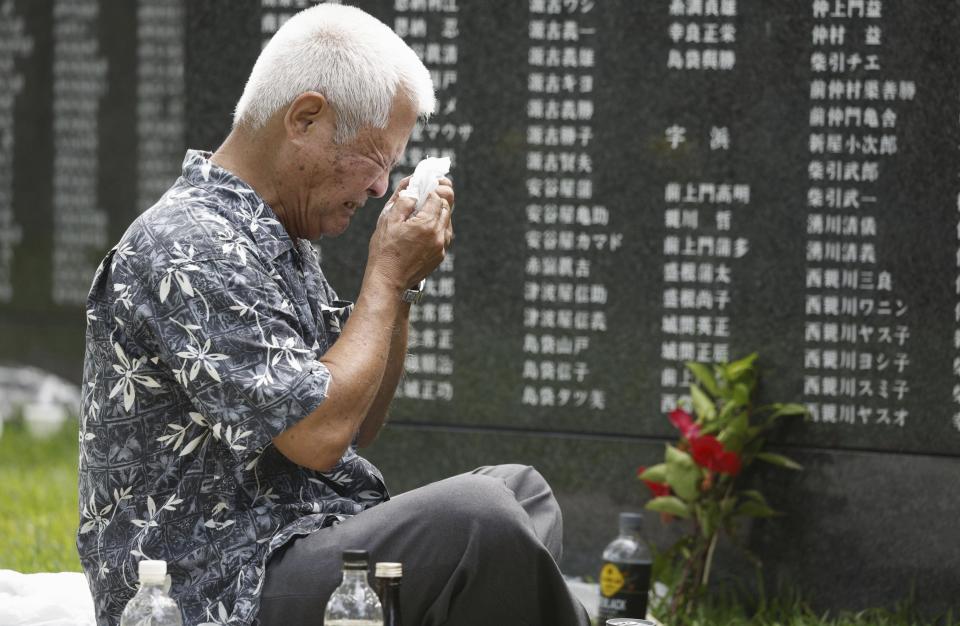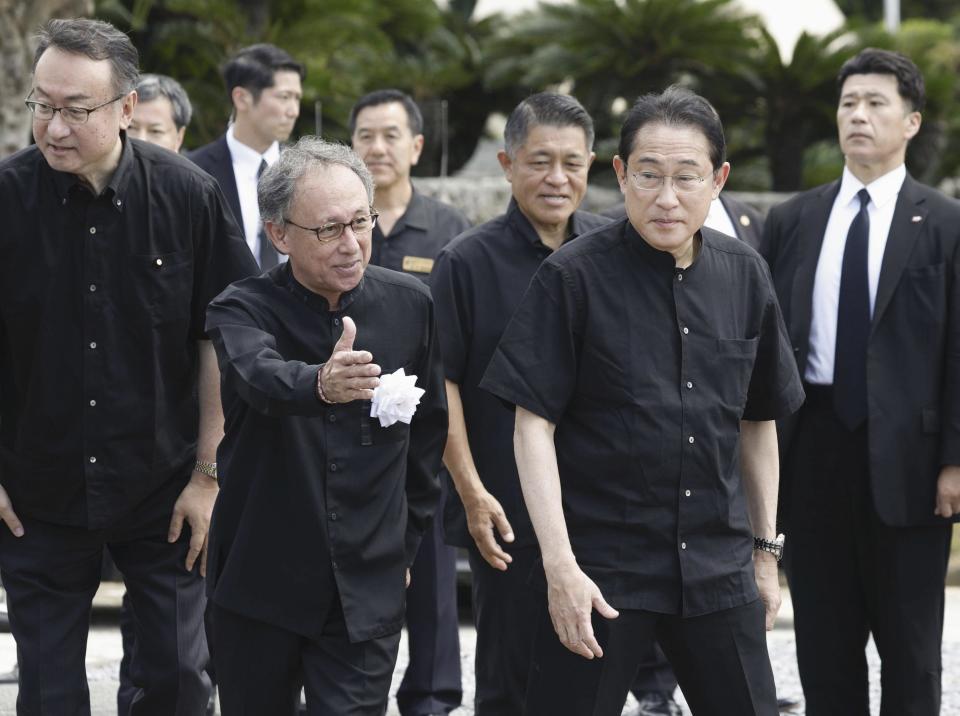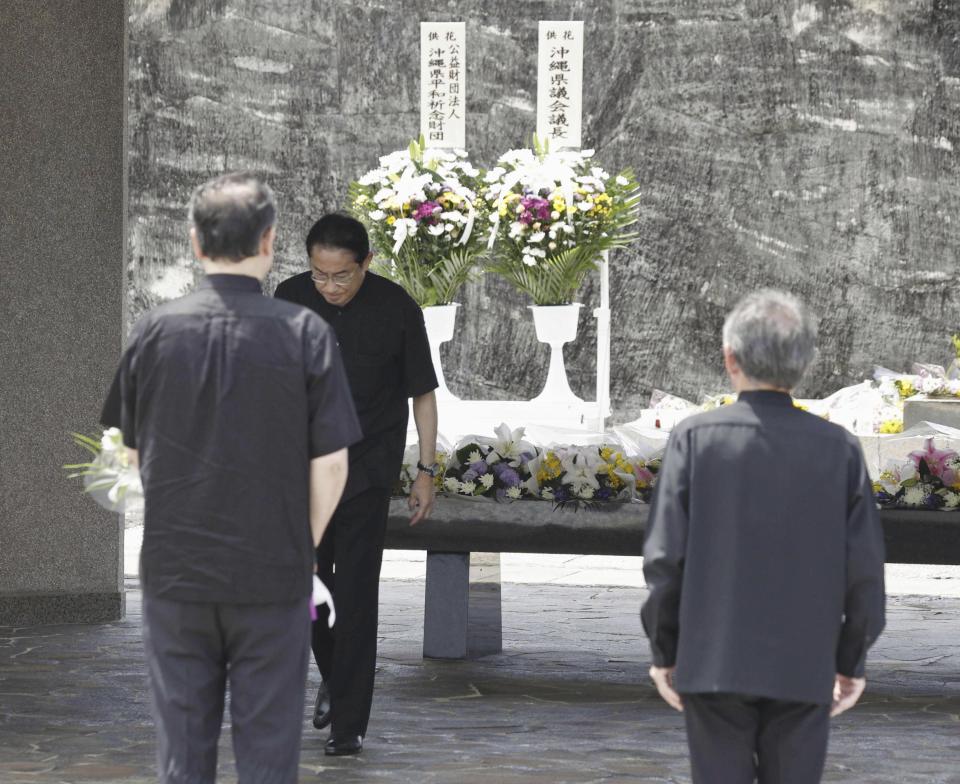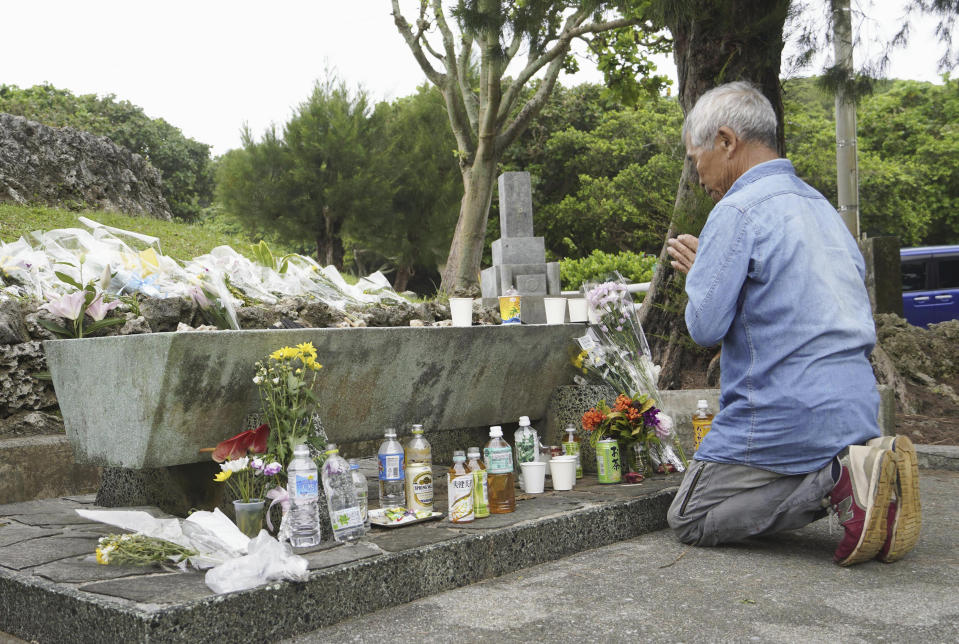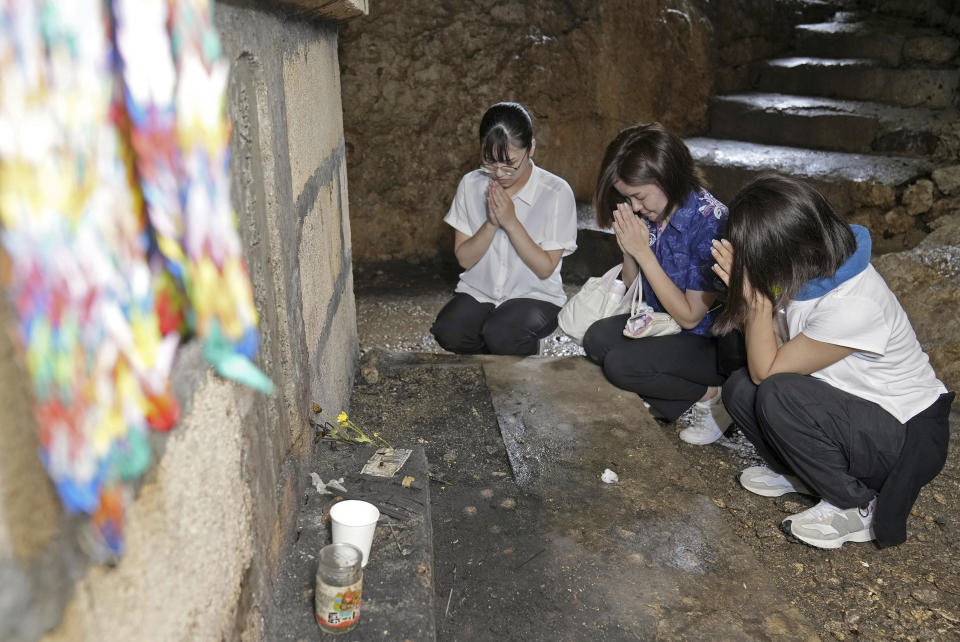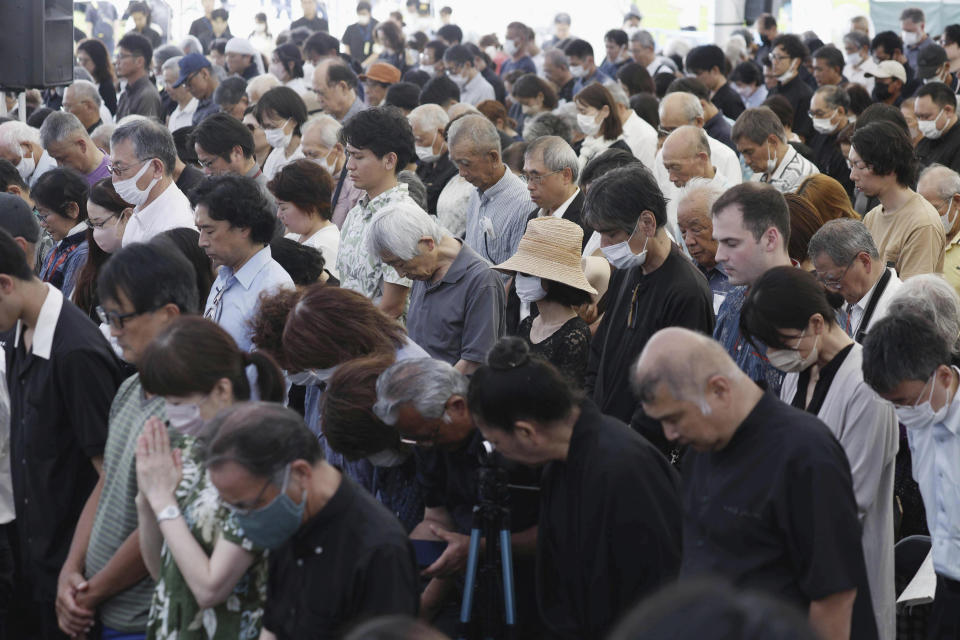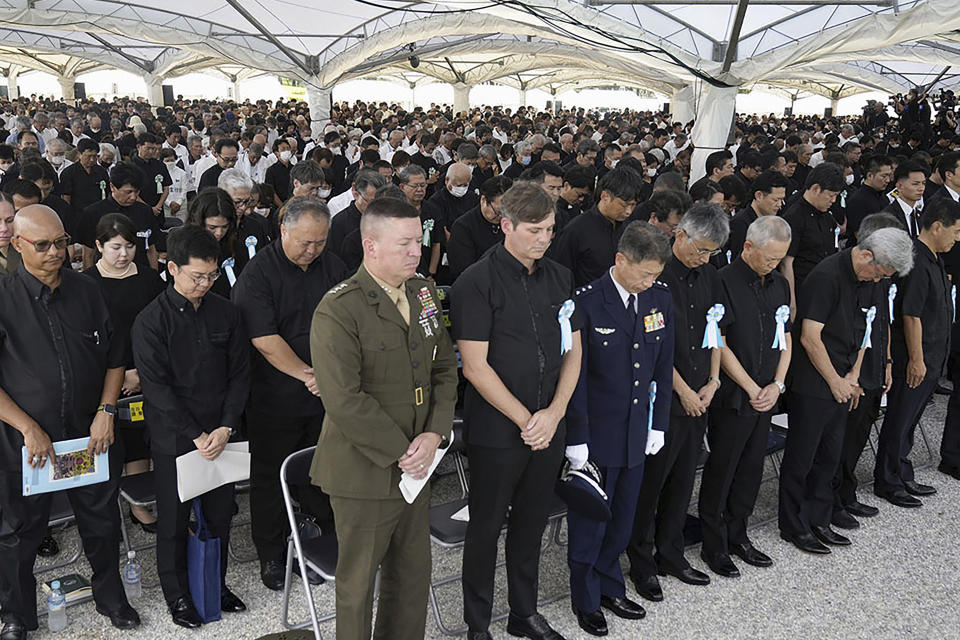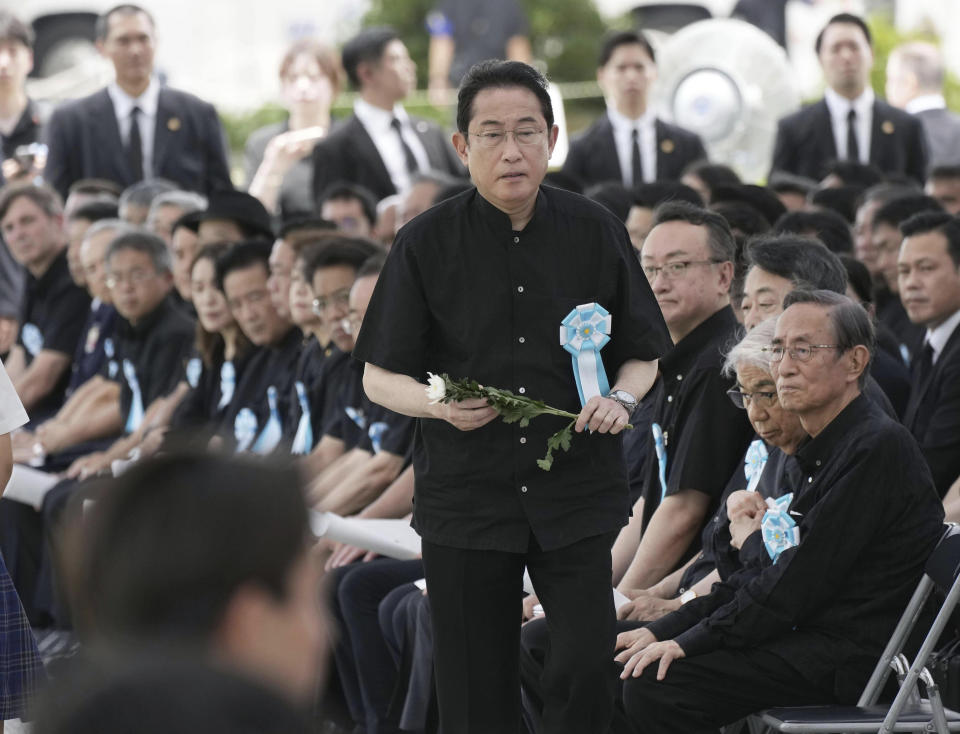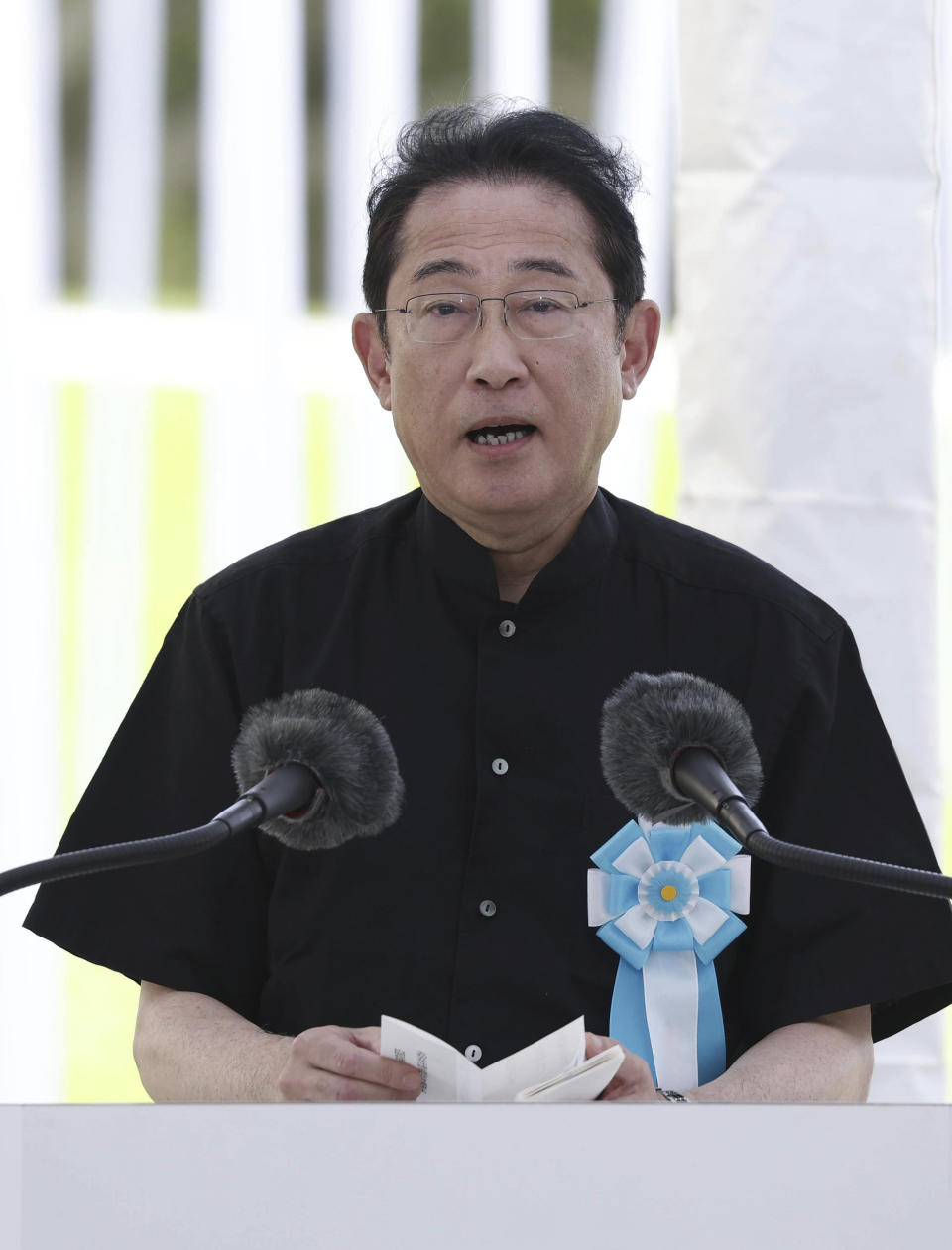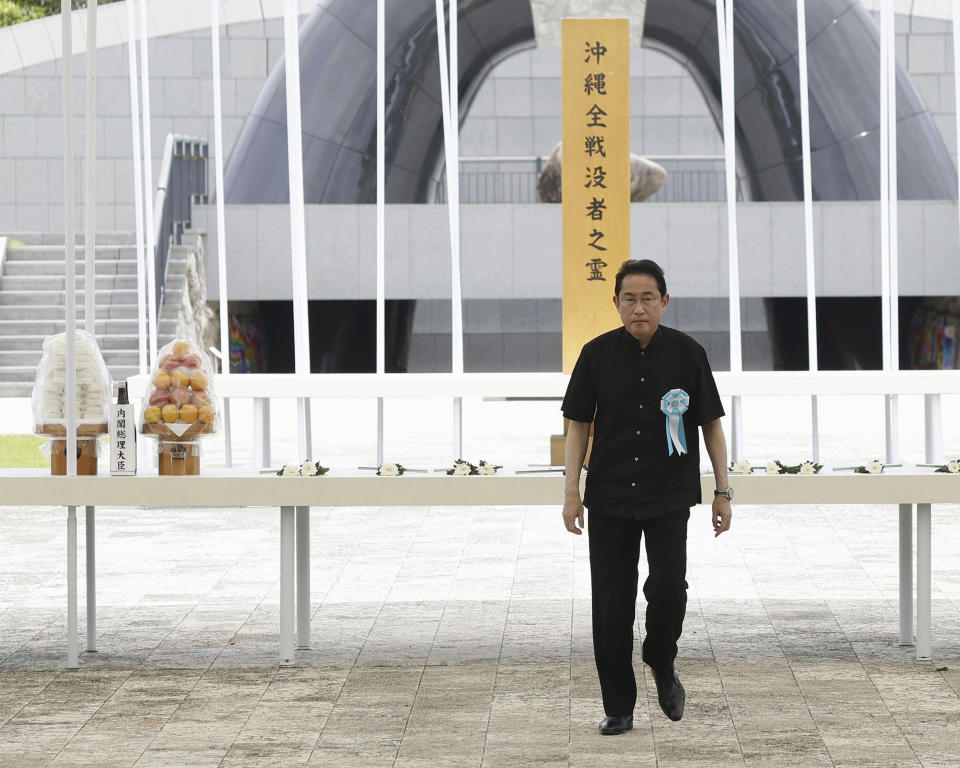Marking Battle of Okinawa anniversary, governor of southern Japanese islands urges diplomacy
- Oops!Something went wrong.Please try again later.
- Oops!Something went wrong.Please try again later.
TOKYO (AP) — The governor of Japan's southern prefecture of Okinawa marked the 78th anniversary of one of World War II's bloodiest battles Friday by calling for more diplomatic efforts toward peace, saying a military building on the islands has residents fearing becoming embroiled in regional tensions.
The Battle of Okinawa killed about 200,000 people, nearly half of them Okinawan residents. Japan’s wartime military, in an attempt to delay a U.S. landing on the main islands, essentially sacrificed the local population.
Okinawa Gov. Denny Tamaki, in his peace declaration, said Okinawans suffered “unimaginable damage” and mark the anniversary by reminding themselves of the absurdity and cruelty of the war as well as lessons learned from survivors.
“We resent all forms of war and renew our determination never to turn Okinawa into a battlefield,” he said.
But now, Japan's new security and defense strategies that highlight a defense buildup on Okinawa are “triggering fear among Okinawans, because of our memories of the fierce ground battle,” Tamaki said. “What we need is diplomacy of peace through dialogue.”
Tamaki said diplomacy and an effort to nurture trust and relieve tensions through dialogue are increasingly important for Asia-Pacific countries.
Okinawa will use its location, history and culture — close to Taiwan, China and other Southeast Asian countries — to contribute to peace and prosperity in its own way, through exchanges in tourism, environment, culture and other areas, Tamaki said.
At a ceremony in the city of Itoman marking the June 23, 1945, end of the Battle of Okinawa, hundreds of attendees, including Prime Minister Fumio Kishida and other officials, offered a moment of silence at noon and placed white chrysanthemums for the war dead.
Kishida, in his speech at the ceremony, said he renewed his determination not to repeat the tragedy of the war by remembering the peace and stability of today was built on Okinawa's sacrifice and difficulties.
“But as we face the most severe and complex security environment in the postwar era, it is important to strengthen our defense posture in the southeast region for the protection of people's lives," he told reporters afterward. That effort would be accompanied by increasing the deterrence and response capabilities of the Japan-U.S. alliance, Kishida added.
Japan’s central government adopted new national security and defense strategies last December with plans to double defense spending over the next five years. That would be a significant military building with more strike capability, a major break from Japan's principle of self-defense-only under its postwar pacifist constitution.
Japan says reinforcing defense on its southwestern islands, including Okinawa, that are near geopolitical hot spots such as Taiwan is key to Japanese defense amid China's growing assertiveness and tensions.
Japan's Defense Ministry has installed missile defense units on Okinawa's nearby islands Ishigaki and Yonaguni.
In May last year, Okinawa marked the 50th anniversary of its reversion to Japan, two decades after the U.S. occupation ended in most of the country.
Still, a majority of the 50,000 U.S. troops based in Japan under a bilateral security pact and 70% of U.S. military facilities are still in Okinawa, which accounts for only 0.6% of Japanese land.
Because of the U.S. bases, Okinawa faces noise, pollution, accidents and crime related to American troops, Tamaki said.
Resentment and frustration also run deep in Okinawa over the heavy U.S. military presence and Tokyo’s lack of efforts to negotiate with Washington to balance the security burden between mainland Japan and the southern island.
___
Find more of AP’s Asia-Pacific coverage at https://apnews.com/hub/asia-pacific
